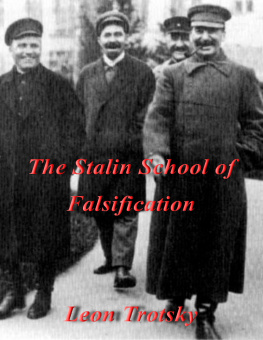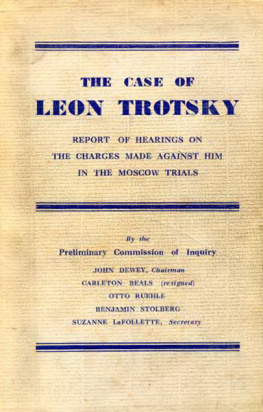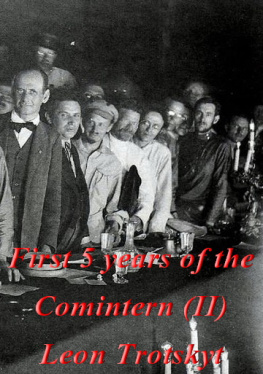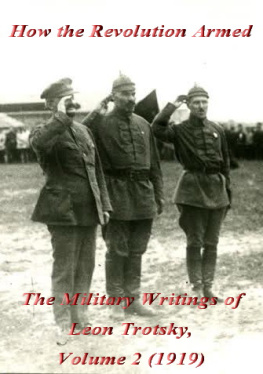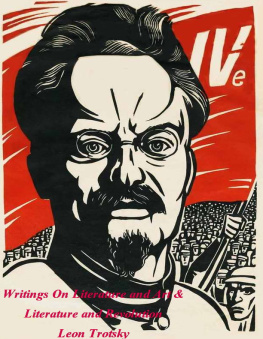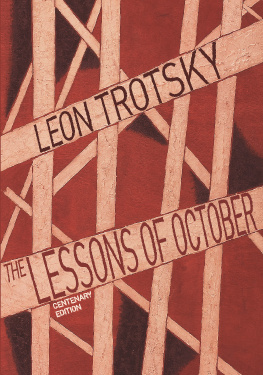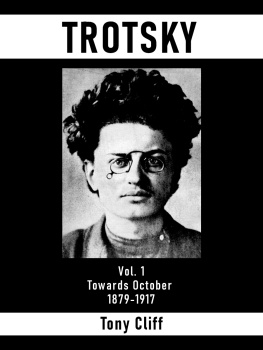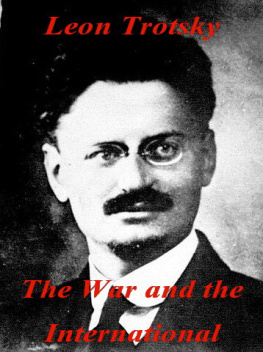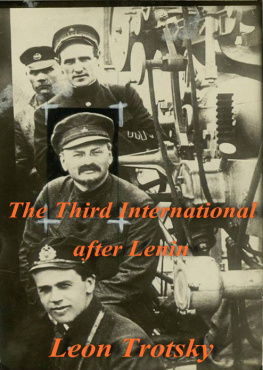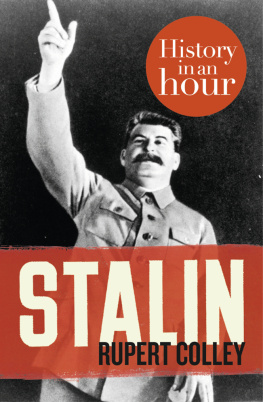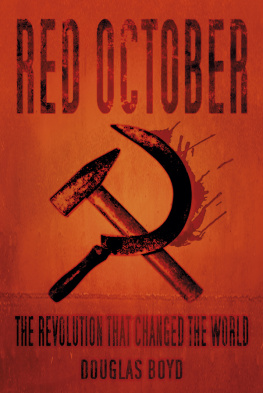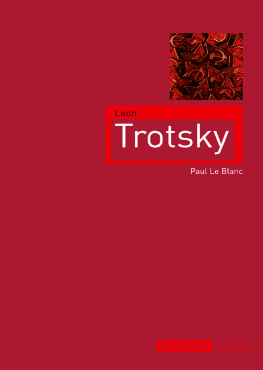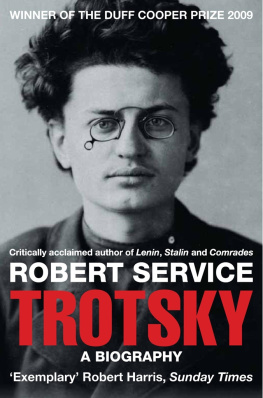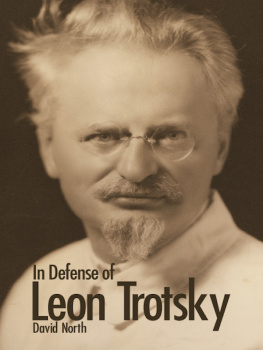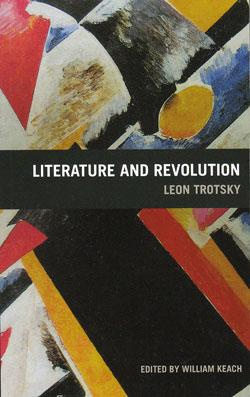Trotsky - The Stalin School of Falsification
Here you can read online Trotsky - The Stalin School of Falsification full text of the book (entire story) in english for free. Download pdf and epub, get meaning, cover and reviews about this ebook. year: 1937, publisher: Marxists Internet Archive, genre: Politics. Description of the work, (preface) as well as reviews are available. Best literature library LitArk.com created for fans of good reading and offers a wide selection of genres:
Romance novel
Science fiction
Adventure
Detective
Science
History
Home and family
Prose
Art
Politics
Computer
Non-fiction
Religion
Business
Children
Humor
Choose a favorite category and find really read worthwhile books. Enjoy immersion in the world of imagination, feel the emotions of the characters or learn something new for yourself, make an fascinating discovery.
The Stalin School of Falsification: summary, description and annotation
We offer to read an annotation, description, summary or preface (depends on what the author of the book "The Stalin School of Falsification" wrote himself). If you haven't found the necessary information about the book — write in the comments, we will try to find it.
The Stalin School of Falsification — read online for free the complete book (whole text) full work
Below is the text of the book, divided by pages. System saving the place of the last page read, allows you to conveniently read the book "The Stalin School of Falsification" online for free, without having to search again every time where you left off. Put a bookmark, and you can go to the page where you finished reading at any time.
Font size:
Interval:
Bookmark:
The Stalin School of Falsification was translated by Max Shachtman in 1937 for Pioneer Publishers.
This transcription for the World Wide Web was made from this same edition.
Max Shachtmans notes are also from the original edition.
Transcribed for the Trotsky Internet Archive, now a sub-archive of the Marxists Internet Archive by David Walters in 1995; revised in 1996 and 2003.
Proofread by Einde OCallaghan in March 2007.
Converted to eBook format by Kollektiv Yakov Perelman, from the on-line version of The Stalin School of Falsification available at Trotsky Internet Archive in November 2013. Cover of eBook provided by Cm Nikas.
T HIS IS A BOOK about liars and their lies. Yet it does not pursue a mere iconoclastic end. It aims to show that the history of the Russian revolution has been falsified for the purpose of falsifying the basis of the revolution itself. A return to the original basis and the ideals of the Bolsheviks in the first years of the Soviet republic requires first of all that the true picture of the revolution be restored by removing the thick encrustation of falsehoods which overlays it.
The history of mans development is also a history of the men who represent its social cross-currents, or its succeeding periods. Indeed, it is sometimes easier to distinguish a segment of social development by the men who prominently represent it than by any of its other marks. For, while men do make their own history, a multitude of forces combine to produce the great man of each period and the agglomeration of men not quite so great who compose the general staff. For a period of progress, history kneads its leaders out of one batch of dough; for a period of reaction, a dough of very much different ingredients is used.
It is not, therefore, because the conflicts in the Soviet Union are due to a base rivalry for power of individuals, but because the groups of individuals involved reflect the profound economic and political changes of the last fifteen years, that the latter can be grasped in the most direct and, so to speak, personal sense by an analysis of the former. Without the physical extermination or the moral destruction of the men who won the revolution and its conquests, it would have been impossible for those who succeeded them to reduce the revolution and its achievements to the low level attained almost a score of years since the Bolshevik uprising.
The Bolshevik party of 1917, the one that led the revolution to victory, was the most unusual political organization in the world. Strictly centralized and intolerant of the dilution of its principles, functioning illegally under Czarism and therefore dispersed by repression to the far corners of Russia and all the other countries of the earth, it nevertheless led a much richer and more democratic inner life than do most parties today. Its vigorous internal discussions and disputes, often conducted by means of temporary groupings, factions and their special periodicals, were not peremptorily settled by appeals to constituted and sanctified authority, to say nothing of administrative repressions or bureaucratic measures against minority opinion. The combination of party democracy and centralization enabled the party to live and flourish even under Czarist reaction, to pass through the Revolution of 1905, the long years of reaction and World War which followed, and finally to emerge victorious in the decisive conflict of November, 1917. The Bolshevik party before the Revolution of 1917 was the product of a process of selection. After the tests it went through, there was little room in it for weaklings, dilettantes, adventurers and careerists.
To he sure, not all the members of the Bolshevik party were cast from exactly the same metal. Nor is there any ground especially now, in retrospect for idealizing even that totality of all the members which was the party itself. On the contrary. Both collectively and individually it was not free from flaws and even serious flaws more telling among the individuals separately than taken as a whole. But firmly grouped together by the cement of revolutionary doctrine, having passed a number of drastic tests for almost two harsh decades, the Bolsheviks formed a party far superior to any other. It was able to perform what almost everybody else considered, a month before the seizure of power, a miracle, and what many continued to consider a miracle years after November, 17. And whatever may or must be said about the short comings of the Bolshevik party, the great, ineradicable historic fact remains that the miracle was accomplished. It is not every day that such a revolution occurs and it is not everybody that can accomplish it.
Early in the revolution, honest adversaries of Bolshevism, who saw through the abominable lies of the capitalist press, made note of the indubitable probity of the Russian revolutionists.
The Russian Communists, wrote the American sociologist, Edward Alsworth Ross, some five years after the revolution, were men with a vision of a regenerated society which they sought to realize. All the party leaders who in November, 1917, laid rude hands on Russian society to remold it by force were sincere men, since, for the sake of their ideal, they had made themselves targets for the inhuman persecutions that went on under the Czars. When freedom arrived in March, nobody had any standing with the Russian masses who had not stood up for them in those ghastly years when every spokesman for the robbed toilers had to skulk and run and burrow if he would remain at large. These fire-tested revolutionaries had behind them a record of personal disinterestedness and heroism which should put to the blush our smug captains of conservative opinion, who have never risked their lives or freedom for others yet affect to dwell on a higher moral plane than the Russian fighters. (The Russian Soviet Republic, p.8. New York, 1928.)
After the Bolsheviks established their government, one of Lenins greatest concerns was the preservation of this party of fire-tested revolutionaries from the negative effects of the power which had suddenly come into their possession in a country with a low cultural level and with powerful traditions of bureaucratism. He was the most tireless and merciless critic of the party and Soviet bureaucracy, and his last two years in particular were filled with increasing apprehensions over its alarming growth. He saw thousands of former anti-revolutionists flocking to the powerful official government party after the consolidation of the revolution, joining it only because it now disposed of the accolade of respectability and the distribution of a vast number of posts. Many of his most scathing strictures were directed at these prudent careerists and belated joiners, and the periodic party purgings which he insisted on were part of his attempt to reduce their pernicious influence. At the same time he was preoccupied with preserving the unity and integrity of the body of old revolutionists, who, with all their shortcomings (which he knew so well!) were a repository of doctrine and revolutionary tradition. Constantly refreshed with new blood, they would more easily withstand the ravages of decay than the careerists and upstarts who, five years after the revolution, were discovering the merits, not of Bolshevism, but of an established government and its official party apparatus.
It must always be taken into account, he wrote to the Central Committee of the party in March, 1922, when the probationary period for new members was being discussed, that it is a great temptation to enter the party of the government. The throng of petty bourgeois and even anti-proletarian elements anxious to join our party will increase enormously in the near future. The six months period probation for the workers will not be able to dam back this throng, the more so as it will be easy for the petty bourgeois elements to become workers for the time being. If we are not to deceive ourselves and others, we must apply the definition of workers solely to those whose life has imparted to them a proletarian psychology, and who have worked for several years in shops or factories, not for the attainment of outside aims, but in consequence of general social and economic conditions. To state the matter openly: it must be recognized that at the present time the proletarian party policy is determined not so much by its membership as by the unlimited and powerful authority of that thin layer which we may name the old party guard. (
Font size:
Interval:
Bookmark:
Similar books «The Stalin School of Falsification»
Look at similar books to The Stalin School of Falsification. We have selected literature similar in name and meaning in the hope of providing readers with more options to find new, interesting, not yet read works.
Discussion, reviews of the book The Stalin School of Falsification and just readers' own opinions. Leave your comments, write what you think about the work, its meaning or the main characters. Specify what exactly you liked and what you didn't like, and why you think so.

